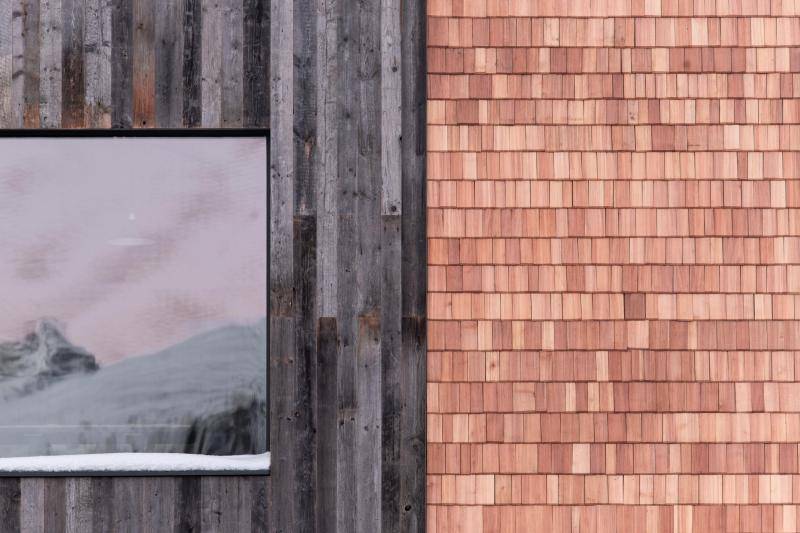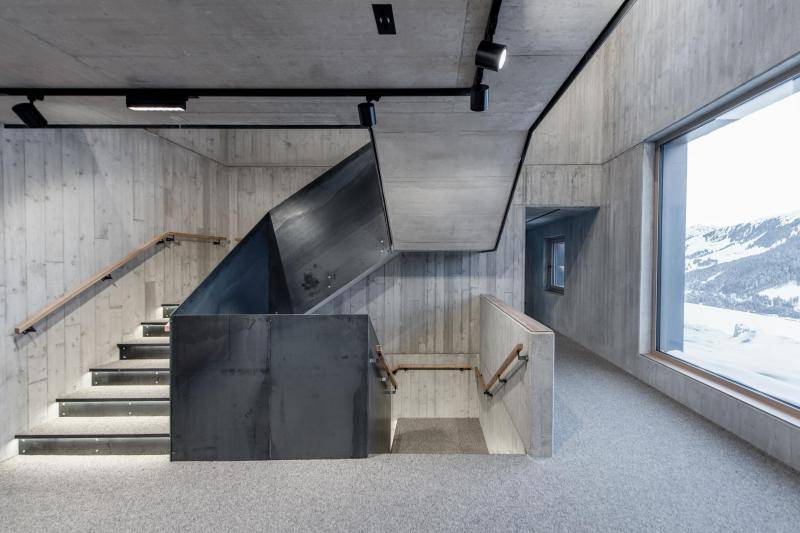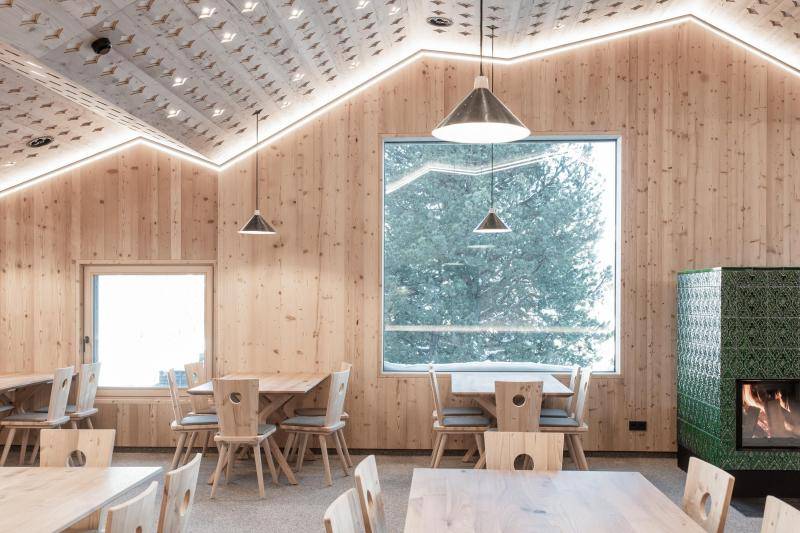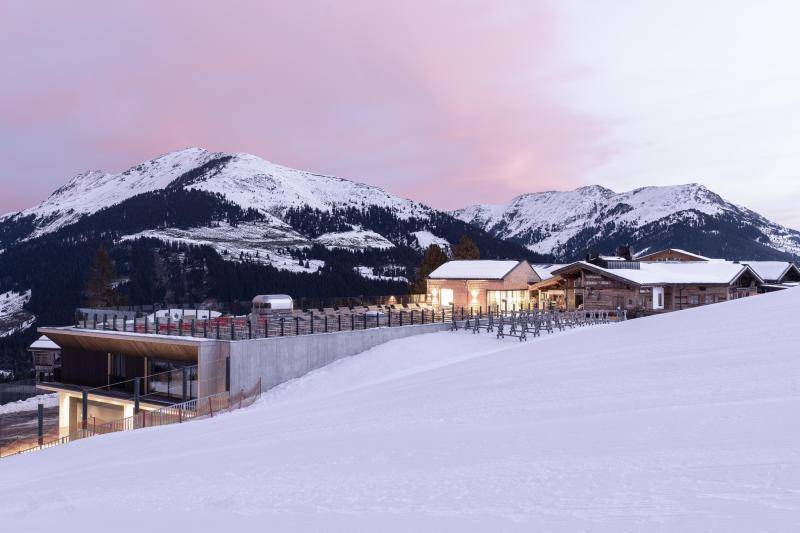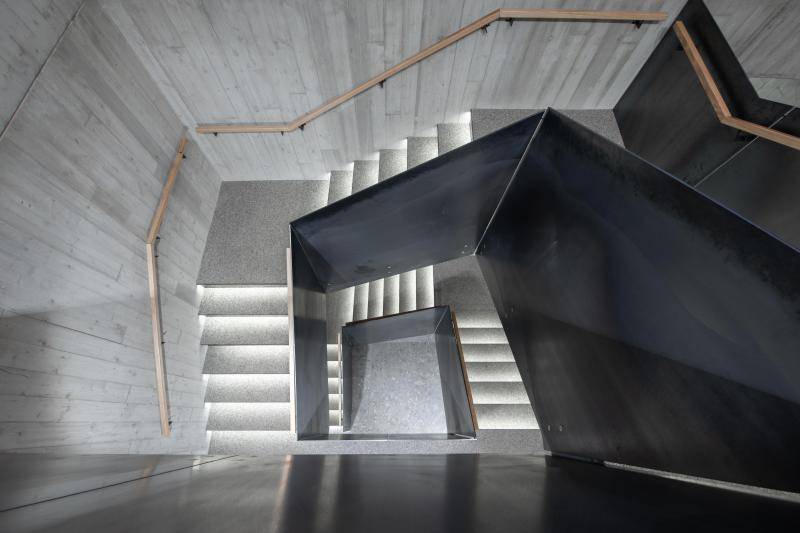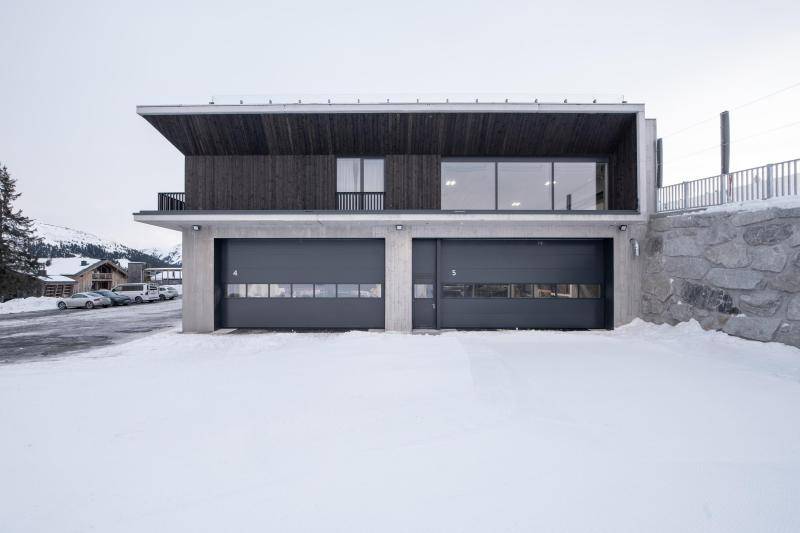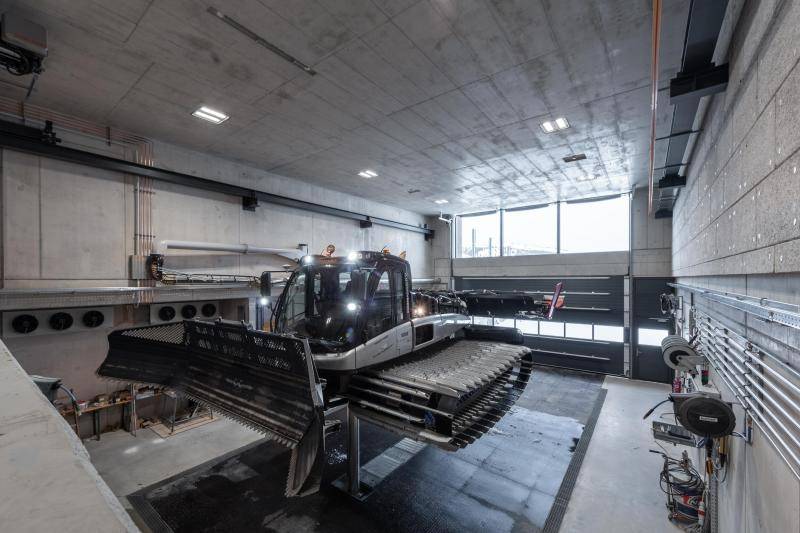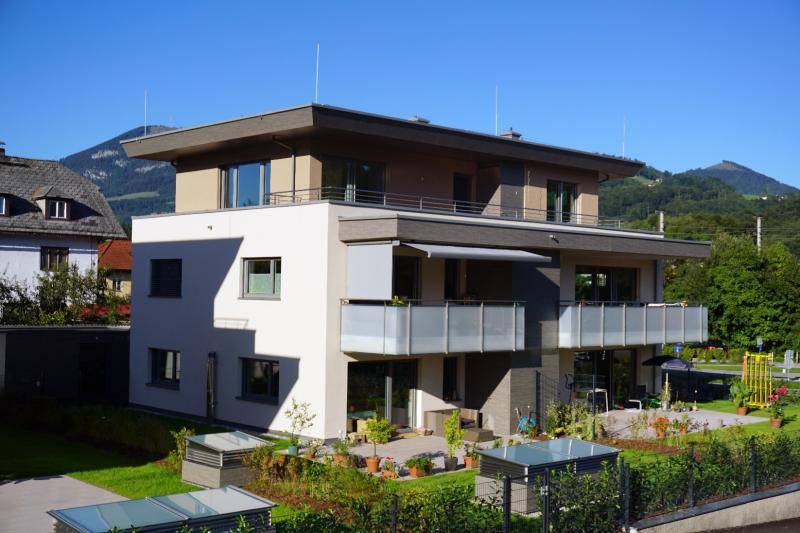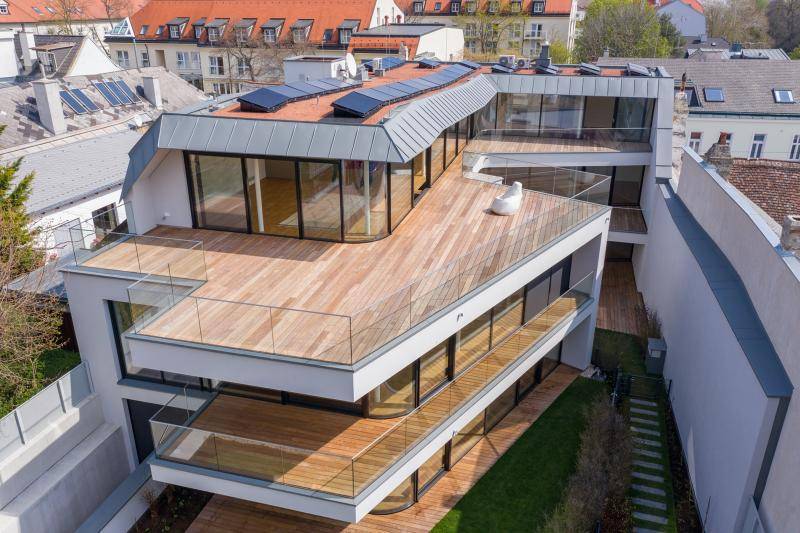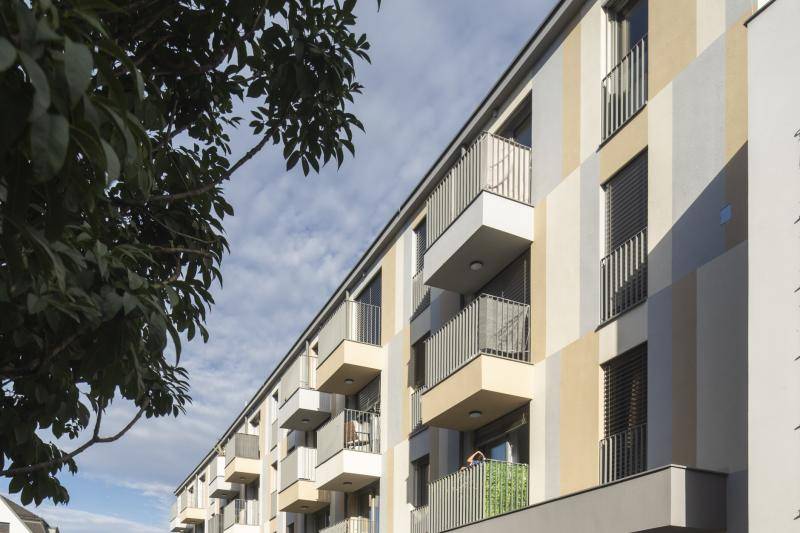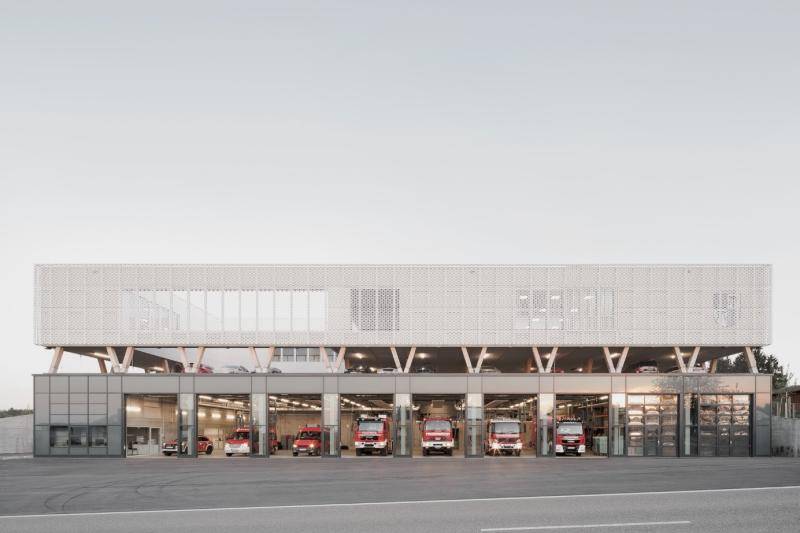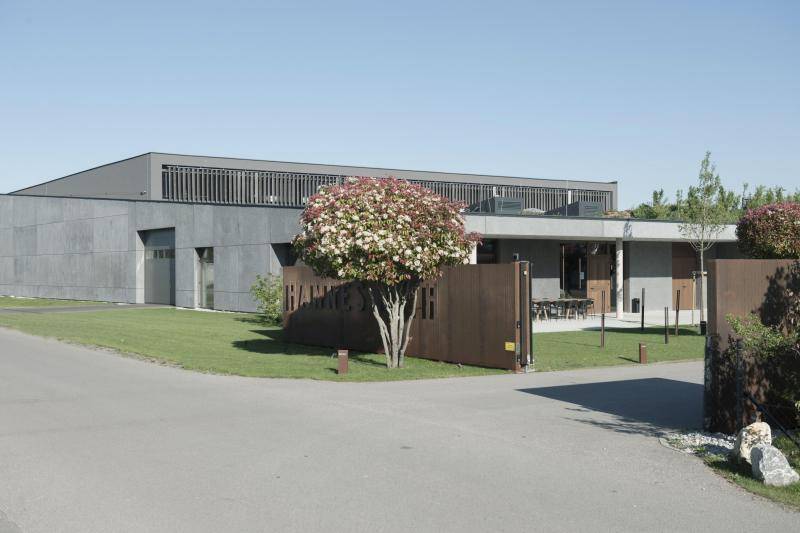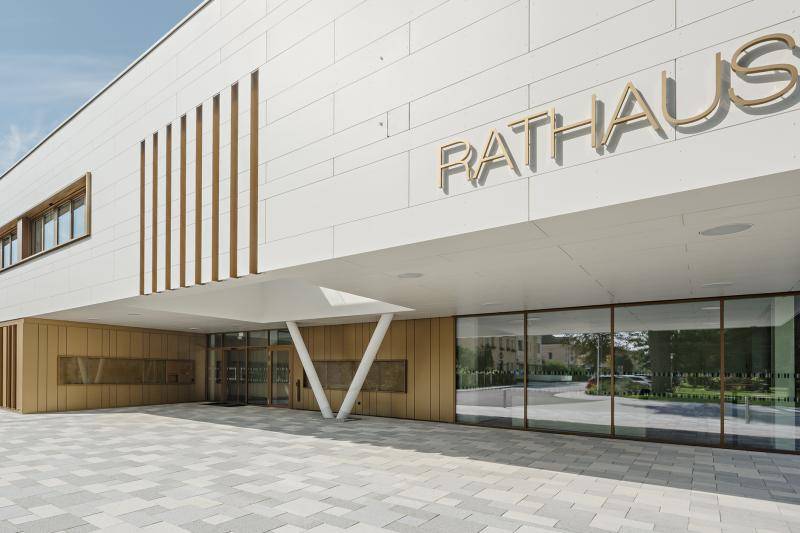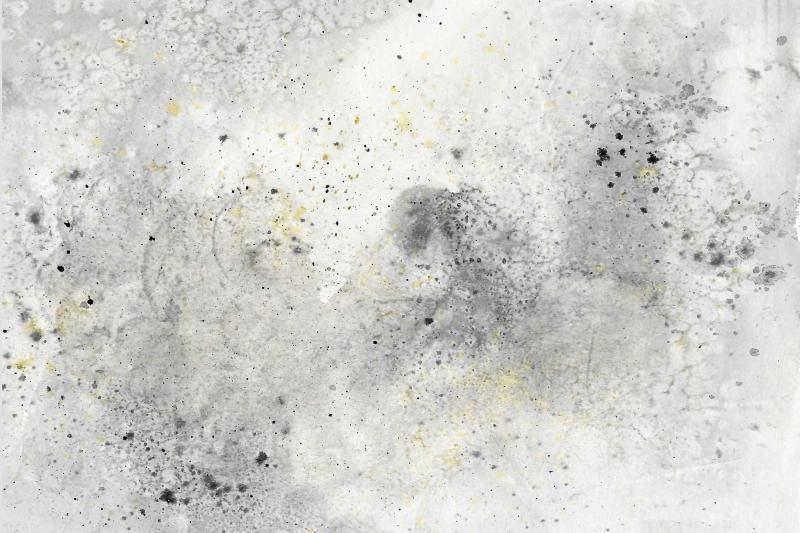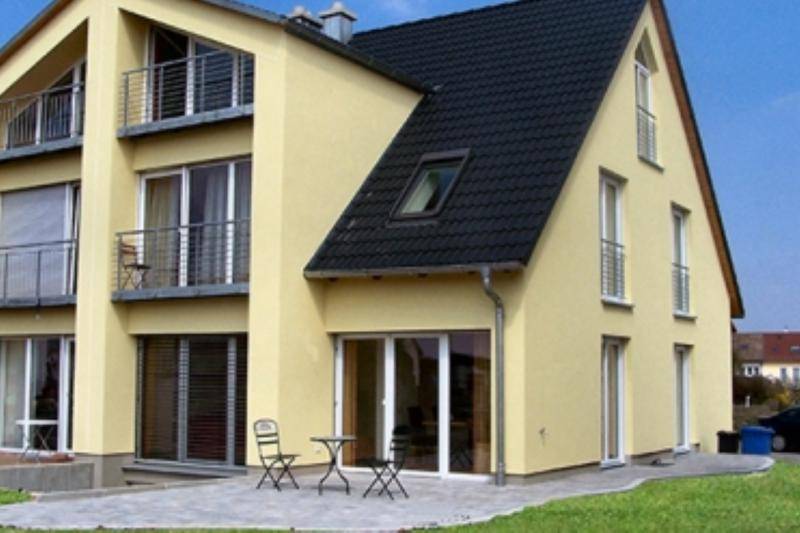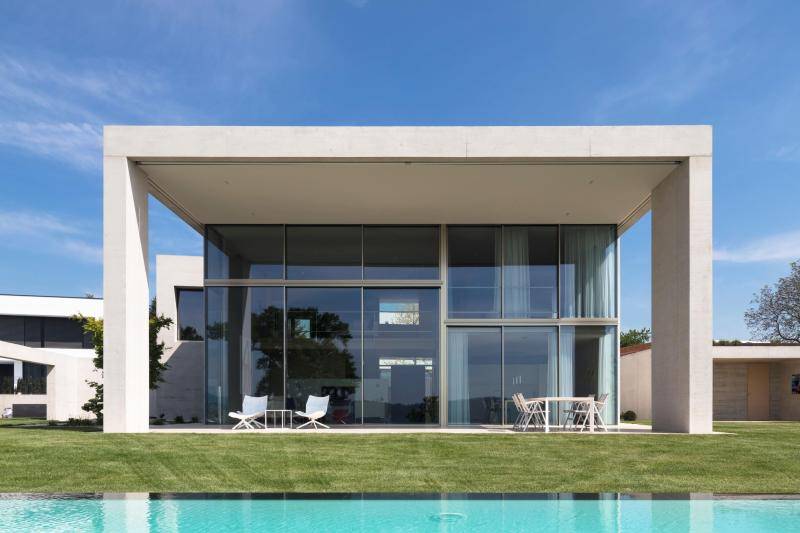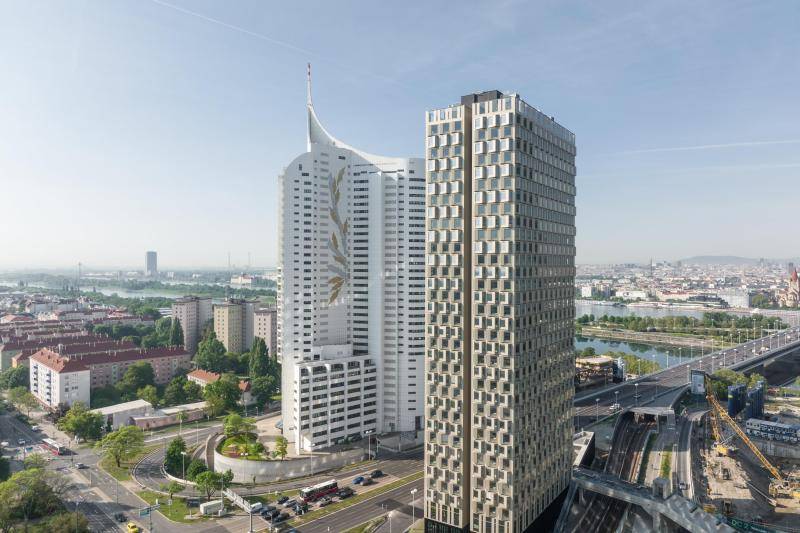Expansion of the Plattenalm in Krimml
At the Plattenalm in Krimml, a new building is being constructed as an extension for gastronomy, staff housing, and a snow groomer garage. In total, 3,500 m² of usable space will accommodate the diverse needs of guests, employees, and alpine infrastructure. The project is realized under the challenging conditions of a high-alpine environment – with a short construction period, extreme weather, and a sensitive natural setting.
In construction
3.500 m²
Platten Alm Beteiligungs-GmbH
1.674 m³
199.500 kg
District heating, thermal activation of building components, photovoltaics, waste heat recovery
ZweiSpann
ZT GmbH
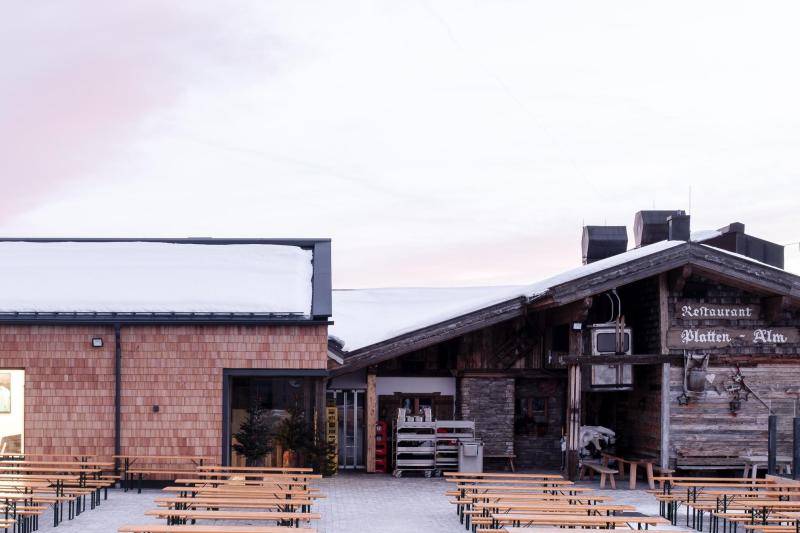
The architecture combines the raw elegance of exposed concrete with a façade of timber and shingles. The result is a building that links alpine tradition with contemporary design language, while at the same time integrating robustly into the surrounding landscape.
The structural concept is based on a double-shell reinforced concrete wall. The inner shell carries the loads and ensures overall stability, while the outer shell provides protection against weather and defines the façade. This construction method guarantees durability and reduces maintenance requirements in a high-alpine environment. The roof slab demonstrates the multifunctionality of concrete, serving simultaneously as spatial enclosure, load-bearing structure, and drainage element. Stair flights and slabs were poured in a single operation, enabling a column-free structure and creating an open spatial character.
The material concept combines robustness with regional identity. Exposed concrete is paired with timber and shingles, establishing a clear reference to alpine building traditions. Sustainable energy strategies – including district heating, photovoltaics, waste heat recovery, and thermal activation of building components – complement the architectural and structural approach. In addition, the reduction of load-bearing elements allows for flexible adaptation of the building to future uses.
Original text © Z+B, abridged
